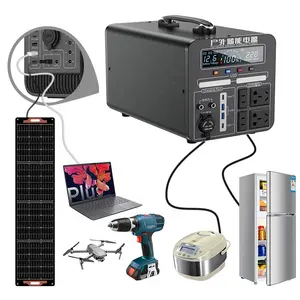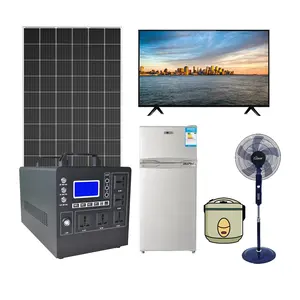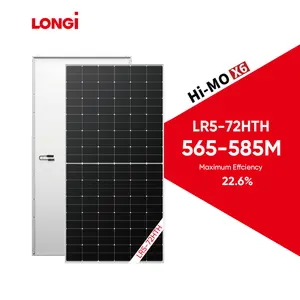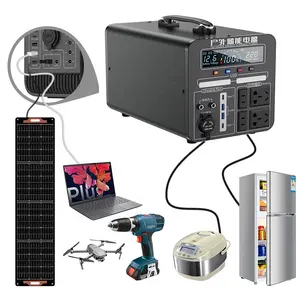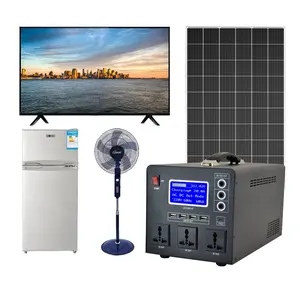Phổ biến trong ngành của bạn






Bán buôn 12V 20AH LiFePO4 ngoài trời năng lượng mặt trời Lithium năng lượng lưu trữ pin nhà sản xuất
1.820.764 ₫
Đơn hàng tối thiểu: 4 Cái





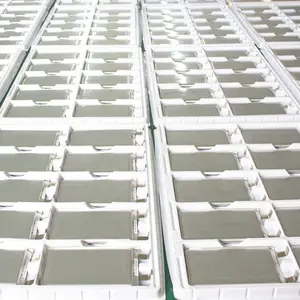

Lithium túi di động 3.2V LFP NCM LiFePO4 năng lượng điện pin 3.2V 5Ah 10AH 20Ah 30Ah 40AH 50Ah 70Ah 100Ah 6000 lần bình thường 1C
72.546 ₫ - 87.819 ₫
Đơn hàng tối thiểu: 4 Cái







33140 40135 3.2V 12 24V 48V 15ah 20Ah 100 200 280ah 300ah 320 LiFePO4 gói năng lượng lưu trữ pin năng lượng mặt trời Pin Lithium Ion
76.364 ₫ - 101.819 ₫
Đơn hàng tối thiểu: 10 Cái







12V 24V 100AH 200AH Lithium Ion LiFePO4 EV RV Pin gói Li Ion pin năng lượng mặt trời cho Caravan Marine thuyền du thuyền ngoài trời UPS điện
483.637 ₫ - 738.182 ₫
Đơn hàng tối thiểu: 2 Cái







12V 24V 36V 48V 72V 50Ah 100Ah 200AH 300ah 400ah 30kwh LiFePO4 EV RV Pin Lithium ion cho Caravan Thuyền biển yach
483.637 ₫ - 992.727 ₫
Đơn hàng tối thiểu: 2 Cái







OEM 12V 24V 20Ah 100Ah 200AH 280ah lăng trụ một năng lượng mặt trời RV Xe golf Pin LiFePO4 gói pin Lithium Ion Phosphate Pin
1.501.818 ₫ - 40.701.805 ₫
Đơn hàng tối thiểu: 2 Cái






LiFePO4 pin 12V 20Ah 40AH 50Ah 60Ah 100Ah LiFePO4 pin lithium gói thay thế SLA Pin Chu kỳ sâu Xe thuyền
4.199.999 ₫
Đơn hàng tối thiểu: 2 Cái






72V 20Ah pin lithium Xe đạp điện 48V 12Ah lto Pin 40AH 60Ah LiFePO4 gói 12V 24V 36V 30Ah 50Ah
967.273 ₫ - 4.276.363 ₫
Đơn hàng tối thiểu: 2 Cái






Pin Lifepo4 12V 20ah 40ah 50ah 60ah 100ah Bộ Pin Lithium Lifepo4 Thay Thế Pin SLA Chu Kỳ Sâu Xe Thuyền
941.818 ₫ - 1.145.455 ₫
Đơn hàng tối thiểu: 2 Cái






Pin Lithium Ion 12V 7ah 12ah 20ah 30ah 50ah Bán Chạy Nhất Bộ Pin LIFEPO4 12V 20ah
458.182 ₫ - 3.818.181 ₫
Đơn hàng tối thiểu: 1 Cái






LiFePO4 pin 12V 20Ah 40AH 50Ah 80Ah 100Ah chu kỳ sâu LiFePO4 pin lithium gói được sử dụng để thay thế SLA Pin Xe thuyền
941.818 ₫ - 1.145.455 ₫
Đơn hàng tối thiểu: 2 Cái






Bán Buôn Trung Quốc 12V 20ah Lithium Ion Lifepo4 Năng Lượng Mặt Trời Golf Giỏ Hàng Xe Đẩy Golf Battery Pack Trong Pin Sạc
1.145.455 ₫ - 1.654.545 ₫
Đơn hàng tối thiểu: 5 Bộ
Các danh mục hàng đầu
Giới thiệu về bộ pin 12v 20ah lifepo4
Công nghệ đang thay đổi cách mọi người sống hàng ngày. Như vậy, đáng tin cậy. bộ pin 12v 20ah lifepo4 trên Alibaba.com mang lại độ bền tốt hơn cho bất kỳ thiết bị nào cần sản lượng điện tốt hơn. Các mẫu khác nhau có các thông số kỹ thuật khác nhau để phù hợp với khuyến nghị của nhà cung cấp. Bền chặt. bộ pin 12v 20ah lifepo4 phải nhanh chóng được tìm thấy và có thể dễ dàng thay thế. Với nhiều loại vật liệu sản xuất, bạn có thể lựa chọn tốt hơn khi mua để sử dụng.
Do tiến bộ công nghệ, nhiều thiết bị cần được cung cấp điện liên tục. Đáng tin cậy. bộ pin 12v 20ah lifepo4 sẽ tồn tại lâu hơn các thiết bị chủ để có dịch vụ tốt hơn. Tương tự, các sản phẩm hỗ trợ này tương thích với các thành phần liti và axit chì. Do đó, khả năng tương thích giữa các thiết bị và các tiện ích hỗ trợ là rất phù hợp.
Cho dù đó là thiết bị gia đình văn phòng phẩm hay pin sạc dự phòng di động, có thể sạc lại. Các phần bộ pin 12v 20ah lifepo4 trên Alibaba.com giúp đảm bảo rằng chúng cung cấp cho người dùng dịch vụ tối ưu. Các sản phẩm này có thể chịu được nhiệt độ cao và ăn mòn. Tuổi thọ dài mang lại dịch vụ tốt hơn trước khi chúng cần được thay thế. Một lần nữa, các cơ sở lưu trữ phải còn nguyên vẹn để giảm va đập mạnh và hư hỏng. Chúng cũng đi kèm với cáp kết nối để có dịch vụ tốt hơn.
Đối với nhu cầu điện quy mô lớn như xe ba bánh và nhạc cụ, kỹ thuật số. bộ pin 12v 20ah lifepo4 cung cấp một bước đệm tài chính. Alibaba.com cung cấp một nền tảng để đảm bảo độ tin cậy khi mua hàng. Nhiều người bán trên toàn cầu phân phối sản phẩm trong khung thời gian hợp lý để tạo sự thoải mái cho khách hàng. Cuộn qua các danh mục để biết các thiết bị tương thích nhất và các giao dịch tài chính.
Do tiến bộ công nghệ, nhiều thiết bị cần được cung cấp điện liên tục. Đáng tin cậy. bộ pin 12v 20ah lifepo4 sẽ tồn tại lâu hơn các thiết bị chủ để có dịch vụ tốt hơn. Tương tự, các sản phẩm hỗ trợ này tương thích với các thành phần liti và axit chì. Do đó, khả năng tương thích giữa các thiết bị và các tiện ích hỗ trợ là rất phù hợp.
Cho dù đó là thiết bị gia đình văn phòng phẩm hay pin sạc dự phòng di động, có thể sạc lại. Các phần bộ pin 12v 20ah lifepo4 trên Alibaba.com giúp đảm bảo rằng chúng cung cấp cho người dùng dịch vụ tối ưu. Các sản phẩm này có thể chịu được nhiệt độ cao và ăn mòn. Tuổi thọ dài mang lại dịch vụ tốt hơn trước khi chúng cần được thay thế. Một lần nữa, các cơ sở lưu trữ phải còn nguyên vẹn để giảm va đập mạnh và hư hỏng. Chúng cũng đi kèm với cáp kết nối để có dịch vụ tốt hơn.
Đối với nhu cầu điện quy mô lớn như xe ba bánh và nhạc cụ, kỹ thuật số. bộ pin 12v 20ah lifepo4 cung cấp một bước đệm tài chính. Alibaba.com cung cấp một nền tảng để đảm bảo độ tin cậy khi mua hàng. Nhiều người bán trên toàn cầu phân phối sản phẩm trong khung thời gian hợp lý để tạo sự thoải mái cho khách hàng. Cuộn qua các danh mục để biết các thiết bị tương thích nhất và các giao dịch tài chính.
